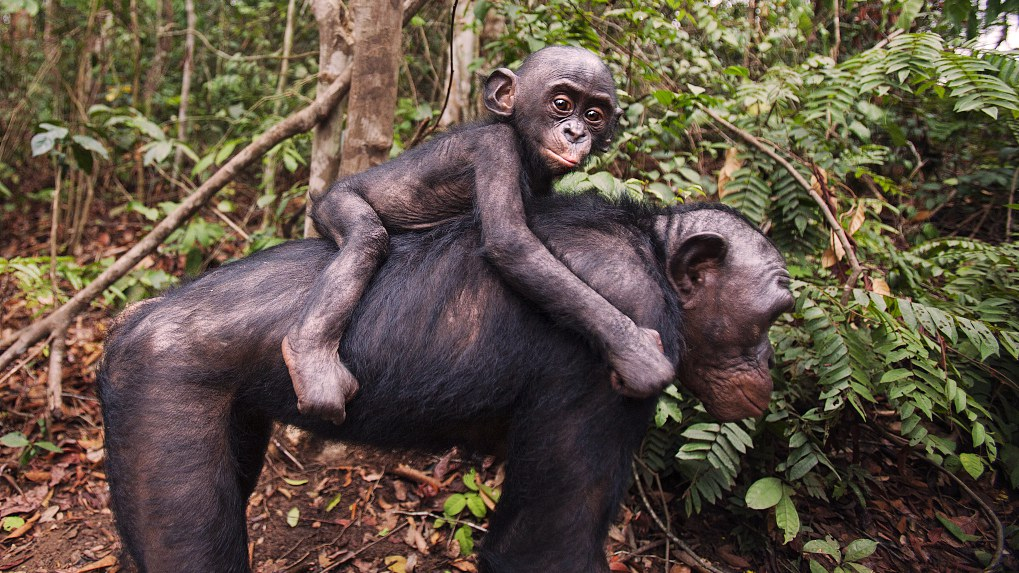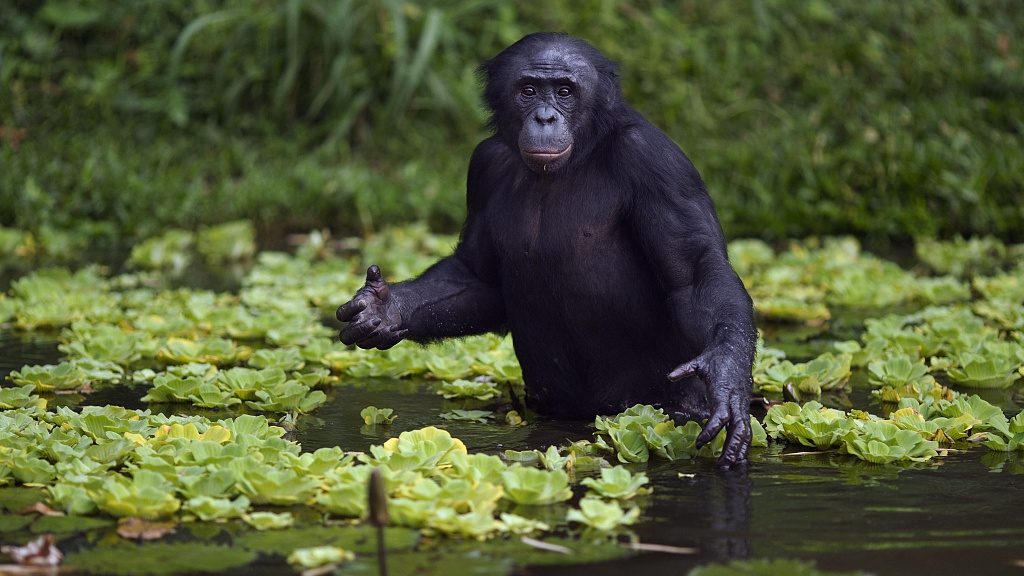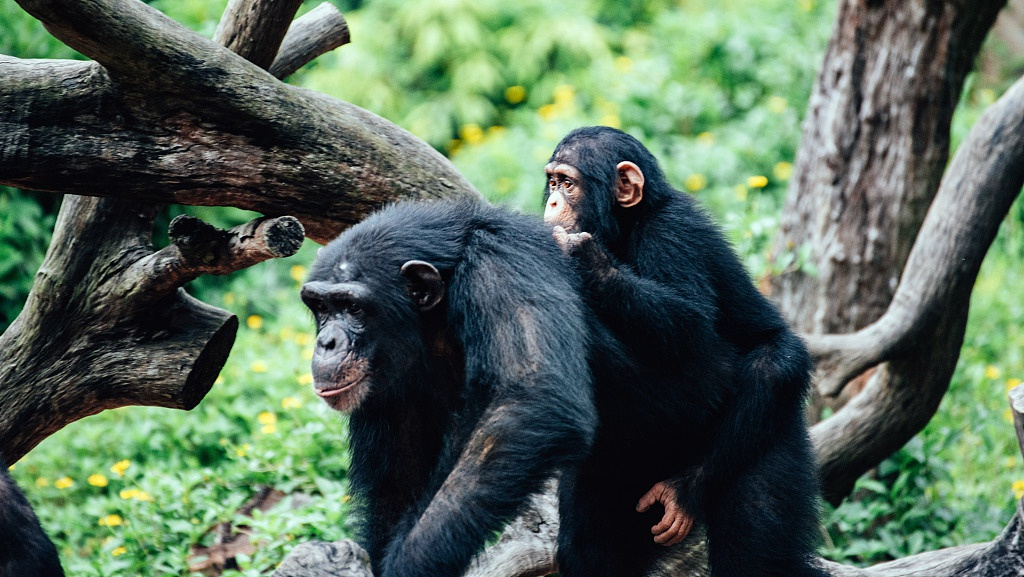
Animal
09:53, 21-May-2019
How bonobo mothers help their sons find love?
CGTN

Anyone who's experienced a mother pushing them to get a move on and produce grandkids might just sympathize with this.
A new study has described the outsized role bonobo moms play in their sons' sex lives: from pulling rank to ensure their male offspring get to meet attractive ovulating females, to interfering with male rivals' attempts to mate.
The paper was published Monday in the journal Current Biology and found that bonobo males whose mothers were alive and remained in their group were three times more likely to father children.

A male bonobo wading through water. /VCG Photo
A male bonobo wading through water. /VCG Photo
And the authors credited the success of the "wingmoms" on the nature of bonobos' female-dominant societies, which have long been known for their altruistic and peaceful character, in contrast to more violent and patriarchal chimpanzees.
"This is the first time that we can show the impact of the mother's presence on a very important male fitness trait, which is their fertility," co-author Martin Surbeck, a primatologist at the Max Planck Institute for Evolutionary Anthropology in Leipzig, Germany said in a statement.
"We were surprised to see that the mothers have such a strong, direct influence on the number of grandchildren they get."
For the study, Surbeck and colleagues observed wild bonobo populations in the Democratic Republic of Congo, as well as wild populations of chimpanzees in Ivory Coast, Tanzania, and Uganda.
To verify paternity, they collected the primates' droppings for DNA analysis.

A female chimpanzee holds a baby chimpanzee. /VCG Photo
A female chimpanzee holds a baby chimpanzee. /VCG Photo
They found that while both bonobo and chimpanzee mothers attempted to assist their sons, bonobos were far more successful because their communities' highest ranks are dominated by females.
Chimpanzee communities, on the other hand, are dominated by males who compete for alpha status.
(Cover image via VCG.)
(If you want to contribute and have specific expertise, please contact us at nature@cgtn.com)
Source(s): AFP

SITEMAP
Copyright © 2018 CGTN. Beijing ICP prepared NO.16065310-3
Copyright © 2018 CGTN. Beijing ICP prepared NO.16065310-3